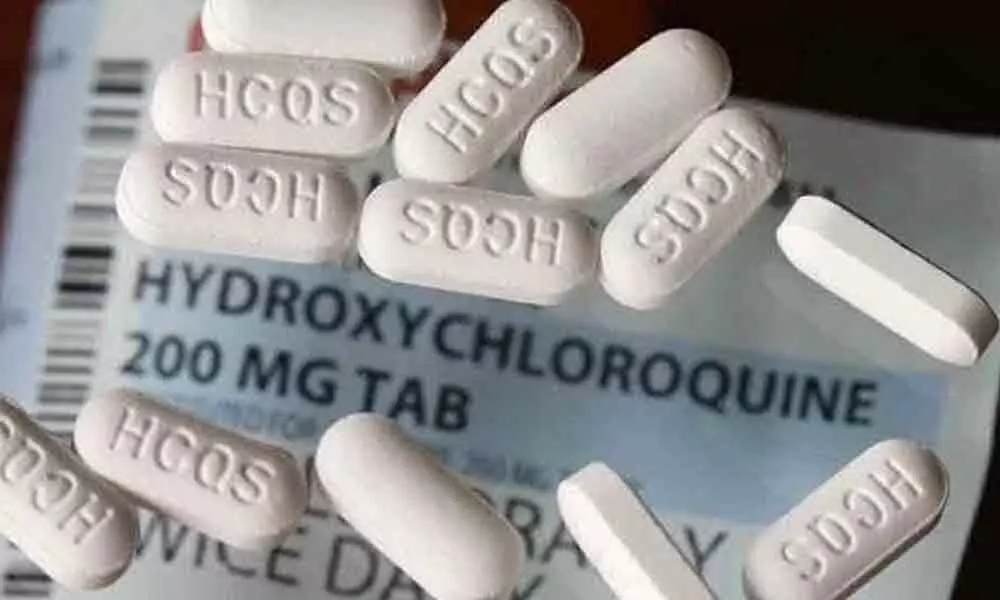Study reveals life-threatening adverse effects of hydroxychloroquine
 Study reveals life-threatening adverse effects of hydroxychloroquine
Study reveals life-threatening adverse effects of hydroxychloroquineToronto: In the rush to treat the hundreds of thousands of people infected with the coronavirus (COVID-19), many, including the US President Donald Trump have supported the use of the antimalarial drug hydroxychloroquine. However, a new study shows weak evidence on its effectiveness against the disease.
The drug has been identified by the US Food and Drug Administration (FDA) as a potential treatment for the coronavirus and was touted repeatedly by Trump as a "game-changer."
However, the current study, published in the Canadian Medical Association Journal, stated that chloroquine, hydroxychloroquine and azithromycin are being used to treat and prevent COVID-19 despite weak evidence for effectiveness, and physicians and patients should be aware of the drugs' potentially serious adverse events.
"Physicians and patients should be aware of several rare but potentially life-threatening adverse effects of chloroquine and hydroxychloroquine," said study researcher Dr David Juurlink, Division of Clinical Pharmacology and Toxicology, Sunnybrook Health Sciences Centre in Canada.
The review provides an overview of potential harms associated with these drugs as well as their management based on the best available evidence.
According to the study, potential adverse effects include cardiac arrhythmias-- Improper beating of the heart, whether irregular, too fast or too slow, Hypoglycemia-- It is a condition in which your blood sugar (glucose) level is lower than normal and overdose (chloroquine and hydroxychloroquine are highly toxic in overdose and can cause seizures, coma and cardiac arrest) Neuropsychiatric effects, such as agitation, confusion, hallucinations and paranoia.
Interactions with other drugs, Metabolic variability (some people metabolize chloroquine and hydroxychloroquine poorly and a small percentage metabolize them rapidly, which affects the response to treatment). Drug shortages (patients with autoimmune disorders such as rheumatoid arthritis, lupus and other chronic diseases, who take hydroxychloroquine to treat these conditions could have problems accessing this drug).
The review summarises the poor quality of evidence suggesting that these treatments might be beneficial in patients with COVID-19 and cautions that it is possible that these treatments could worsen the disease.
"Despite optimism (in some, even enthusiasm) for the potential of chloroquine or hydroxychloroquine in the treatment of COVID-19, little consideration has been given to the possibility that the drugs might negatively influence the course of disease," said Dr Juurlink. "This is why we need a better evidence base before routinely using these drugs to treat patients with COVID-19," Juurlink added.














